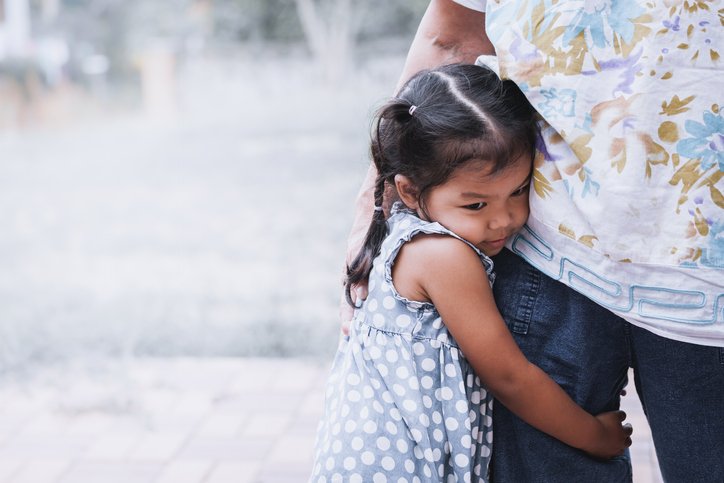Supporting Your Child’s Separation Challenges
Separation challenges from parents and caregivers can start at an early age in children. It can begin in infancy and last for some time. Some children experience separation anxiety before preschool or kindergarten or when starting a new daycare.
In most cases, separation challenges are developmentally appropriate. As a parent, you are their touchstone. Your presence is how they have learned they are safe in the world and that their needs will be met. They look to you for reassurance, and to take care of things. This is a sign of good attachment. As they grow more independent, they will learn to hold you in the back of their mind and gain confidence in themselves to handle what is before them.
Children can benefit from having their own space away from their caregivers and spending time in different environments and with different people. Here are some ways to ease your child’s separation challenges:
Explain to your child where they will be going and what you will be doing. This is a big concept for your child to understand, but telling them that you will be going to “work” and they will be going to “school” or “daycare” will let them know the plan. Young children like to know what’s coming next. Creating a daily schedule chart or social story that shows what your child will do at preschool or daycare.
Talk to your child about the things they will need to take with them when they go to a new place, such as school. This could include a backpack, a snack or lunch, an extra set of clothes, etc. Your child may enjoy picking out a new backpack, lunchbox, or water bottle—decorating a water bottle with stickers can be fun, too!
Avoid stressful mornings by laying out you and your child’s clothing the night before, and packing lunches the night before. Build in an extra 15-20 minute window to get to school. You never know when a lost shoe or busy commute is going to throw your schedule off.
Have your child’s backpack packed and waiting by the door. Your child could help you pack their backpack. Ask your child questions, such as “which extra clothes would you like to bring?” Then, let your child know that they could bring an extra special toy or comforting item with them to help them feel safe.
When you begin to leave your child in the care of others, developing a routine can help. Discuss and even practice it so your child can better understand what to expect. This might also help your anxiety on your first day apart, too. When starting preschool or kindergarten, practice the routine with your child at home. You could turn it into a “dropping them off at school” game. When playing “drop off at school,” your game could include:
Say hello to the teachers at your child’s school. If your child can say hello or wave, have them practice that.
Find a toy, puzzle, or book in the classroom that they really like or want to play with that day.
Hug and kiss your child.
When it comes to the real thing, develop a consistent routine for drop off: This could include walking your child to the school doors; giving them a hug; reminding them where you are going to be when your child is at school and that you will pick them up at the end of a school day. Resist a long goodbye.
Some children have a hard time saying goodbye. They can burst into tears or they might just wave and start learning for the day. Know that some days will be easier than others. To comfort your child, tell them that you will be back at the end of the day to pick them up.
At pick up, ask your child’s teacher or caregiver how they did that day. It’s not uncommon for children to calm down a few minutes after they are dropped off—even when the morning started in tears.
It can take days, weeks, or even months in some cases before a preschooler’s anxiety reduces and they can have fun at school. Separation is difficult for both caregiver and child, but know that it gets easier with time and practice.
This article is brought to you by Parenting Now Parenting Educators and authors Amanda Bedortha, Claire Davis, and Kalina Glover-Moresi. Parenting Now offers parenting groups and drop-in programs for families with children 0-8, and is passionate about fostering happy, healthy families. For more information about Parenting Now please visit their website (https://parentingnow.org/) or contact us at info@parentingnow.org.
Triple P – Positive Parenting Program
Are you interested in receiving more parenting advice? Triple P Online – Positive Parenting Program could be for you! This online parenting program allows you to take a parenting class in the comfort of your own home!
If you live in Lane County, you can get Triple P Online for free by filling out the form on the Triple P page. A staff person from Parenting Now will send you an access code within 24 hours and you’ll be able to start using the program right away! For more information about the program and to sign up visit the Triple P page.

